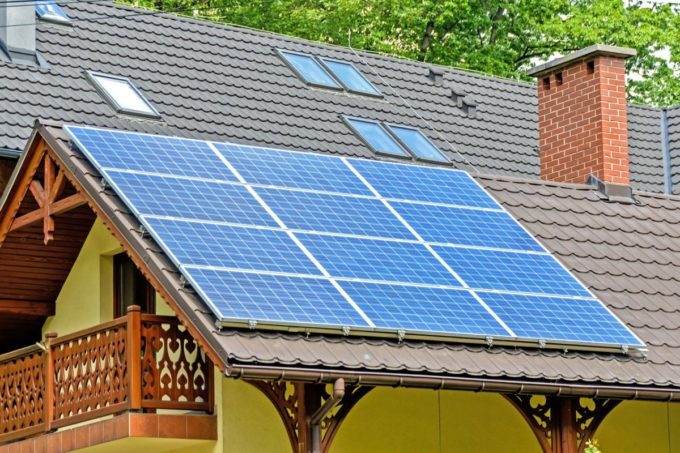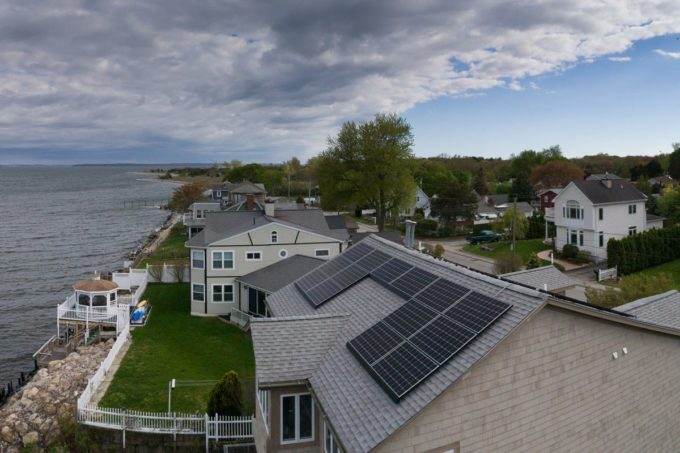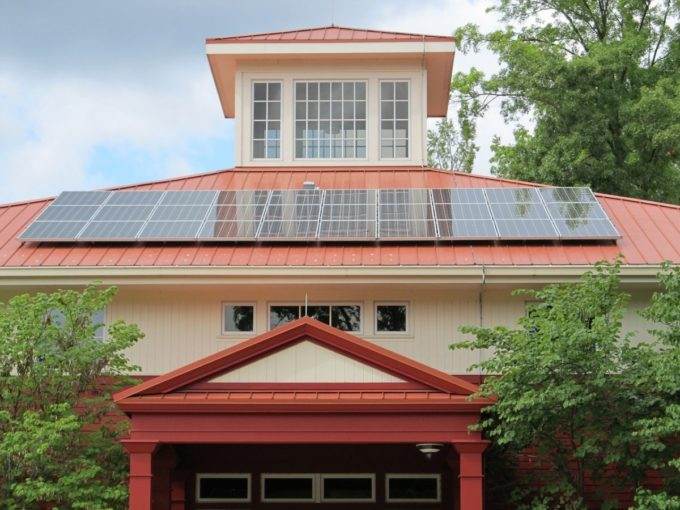As renewable energy becomes more accessible, an increasing number of properties are harnessing the power of the sun. In fact, many of the homes sold nowadays already come with solar system installation. What this means is that new homeowners can skip this step and reap the benefits the moment they move in.
That being said, it’s important for homebuyers to be cautious when making such a big purchase. Given how solar power has only taken off in recent years, it’s a relatively new technology, so you want to ask a couple of questions before making the decision. To help you out, we are simplifying the entire process with this easy-to-follow guide so that you can feel more confident when looking at homes with solar panels.

Homes with solar panels are in demand
Find out whether the solar panels are leased or fully-owned
When purchasing a house with solar panels, an ideal situation is the one where the current homeowner fully owns the solar panels. The solar panels that were bought for cash instead of being leased become yours once you purchase the house, meaning you become the sole owner of solar panels who’s solely responsible for them. Things get a bit complex if the system happens to be leased, though.
Since solar leases are usually for 20+ years, there is a good chance that the current homeowner hasn’t paid theirs off. In that case, review the lease agreement with a lawyer or solar professional before signing anything. After that, you can either take on the lease or have the current homeowner pay it off before selling or otherwise compensate you for the liability.
Have the solar panels inspected

Have homes with solar panes inspected before you buy
Once you’ve asked about solar ownership/leasing, it’s time to tackle the pre-inspection of your potential future home. Start by taking a look at the panels and inspecting them for damages. The ground-mounted models can easily be checked on your own while the roof-mounted ones will require a pro to inspect them. It’s best to hire the inspector yourself instead of letting the homeowner choose one so you can get an objective opinion. Any cracked glass or hot spots are damage indicators and they will need replacing. Cabling is another thing to watch out – it should be properly tied off and the wire insulation should be faultless.
Check the inverter and metering system
Part of the pre-inspection of a home has to do with checking the electrical components of the existing solar system. Start by taking a look at the inverter and checking whether it’s working properly. Generally speaking, the inverter should be replaced once during the lifetime of solar panels. In that case, you want to find a manufacturer who will provide you with a superb solar inverter as this will ensure that your solar system is performing at an optimal level.
Bear in mind that the location also plays a role in solar energy production, which happens to be particularly high in areas where it is sunny for most of the day – think Malaysia, where there’s sunlight from 6 AM to 6 PM. Utility meters are another essential component so make sure to familiarize yourself with these as well.
Ask to see past electric bills
It is true that, if done the right way, investing in the solar energy system may boost your home’s value. That being said, how much solar panels increase home value will depend on a couple of factors such as the housing market, how the system affects the overall look of the home, whether the system is leased or owned, as well as how old the system is.
This last one brings us to our next tip, which is asking the homeowner to have a look at past electric bills. How efficient the system is will largely depend on its age, and going through electric bills from the previous years will let you know if and how the solar panels saved them money. Some countries will actually pay homeowners whose solar panels produce excess electricity, but you should check this in advance as well.
Familiarize yourself with warranty terms
Another thing you should cross off your checklist when house-hunting is to get familiar with warranty terms. The panels and the inverter will come with separate warranties, and while the solar panels tend to have a longer warranty, the lifespan of inverters is usually shorter, meaning that they’ll have shorter warranties.
While certain manufacturers warranties guarantee a solar panel lifespan of 25-30 years, the lifetime of a solar inverter is around 10 years. Having these warranties will prevent you from getting in trouble. Should any issues arise, you’ll have the necessary documentation on hand.

Tips to check homes with solar panels
Homes with solar panels – Summary
For those in the market for a new house, coming across a property that comes with an installed solar energy system might seem like a convenient option since it means they can skip the entire installation process. However, before signing a contract, there are a couple of questions that need answering so you can make sure that you’re making the right move.
After all, purchasing a new home is a big financial decision, so make sure to ask questions about the system, its components, and whether the solar panels are leased or fully-owned. In doing so, you will prevent getting yourself in an unexpected financial situation and manage to purchase a home that generates clean, green, and, most importantly, free energy.
 About the Publisher
About the Publisher
Bo Kauffmann is a residential real estate agent with over 18 yrs experience in helping buyers and sellers achieve their goals. Inducted into the REMAX Hall of Fame in 2010 and receiving the REMAX Lifetime Achievement Award in 2019, Bo has sold over 500 houses and condos in the Greater Winnipeg market. He is an accredited buyer representative (A.B.R.) and a Luxury Home Marketing Specialist.
Bo provides exceptional service to First-Time Home-Buyers, Seniors looking to downsize and Home Sellers of all ages.
He can be reached easily By E-Mail or call/text him Call/Text Here
Never miss an episode of our real estate podcast. Install our FREE Podcast App available on iOS and Android. For your Apple Devices, click here to install our iOS App. For your Android Devices, click here to install our Android App. Check my videos on Youtube


